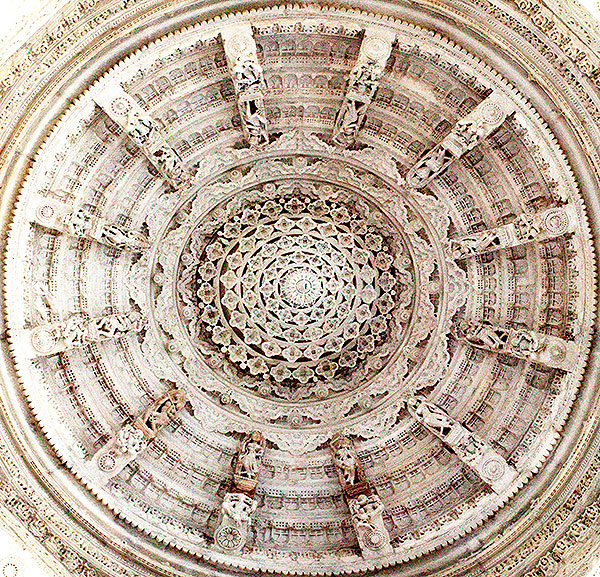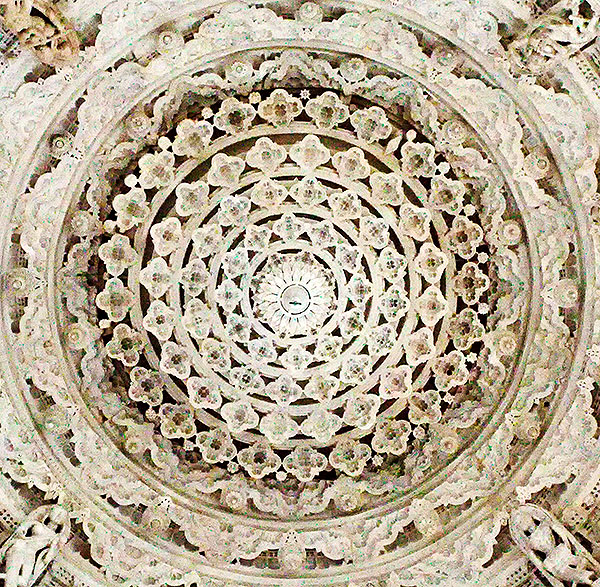The Adinath Temple of Ranakpur, and Getting There.
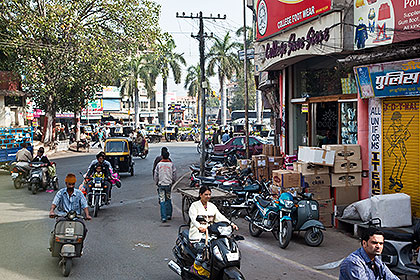
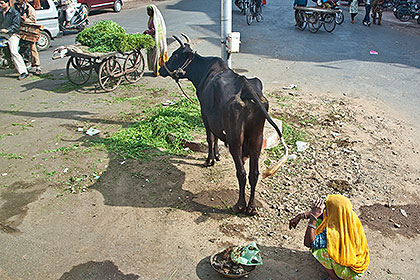
We are now motoring through Rajasthan toward Ranakpur, about 58 miles from Udaipur. As usual we keep looking at the ordinary street and highway scenes along the way, taking a photo now and then.

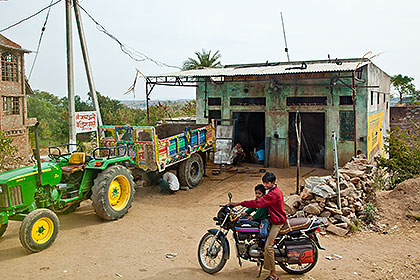
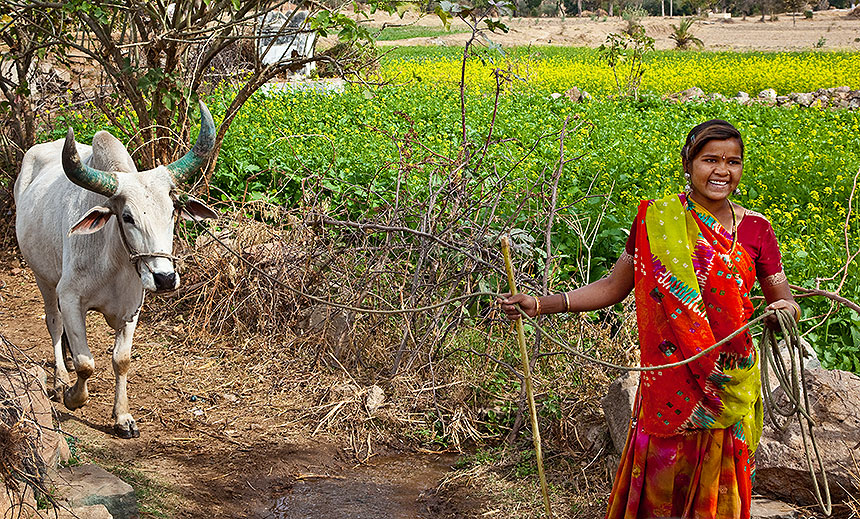
About half way to Ranakpur our national guide Madan has the bus stop at a country spot where he is known, so that we can get closer to some farming people. A lady leads a cow toward us, while a man is industriously scrubbing some clothes nearby.
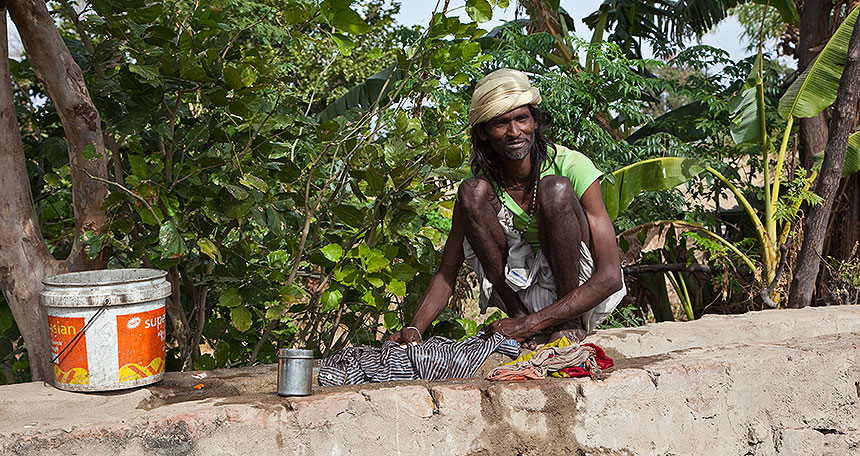
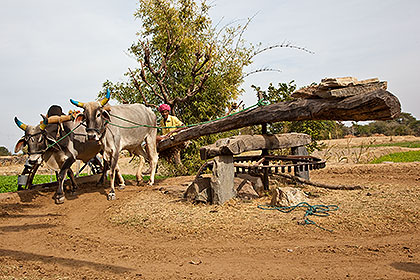
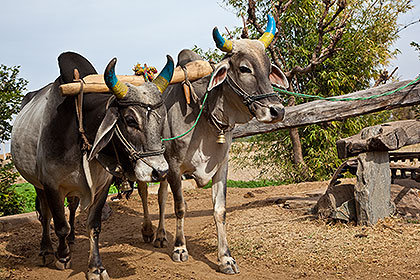
A few steps further along the farm lane brings us to an ox-powered irrigation pump. Spurred on by an attendant (above left), the oxen tread in a circle, pulling a huge lever made from a log and counterweighted by stones. At the center the lever turns a vertical axle which is geared to a horizontal axle just below the surface. That axle turns a water wheel (below left) which lifts water from a lower trench to a higher one. The water then flows (below right) toward a field of crops needing water.
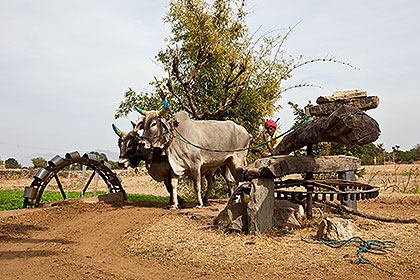
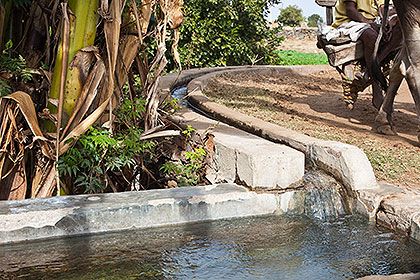
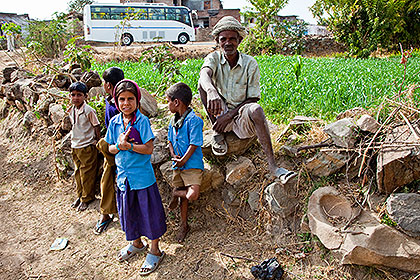
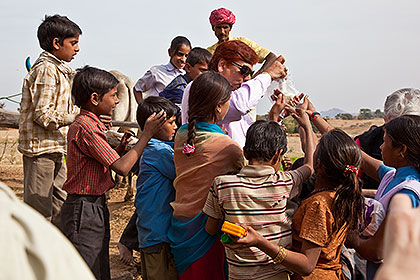
Meanwhile children have been gathering, hoping for handouts. They are anxious to have anything we can give them, such as soaps and little bottles of shampoo and lotions from our hotel rooms. We begin to collect these and keep a supply with us to give out at times like this. In some locations we even encounter adults begging for shampoo. Such poverty is saddening, but we notice that even the poorest beggars are polite and non-threatening.
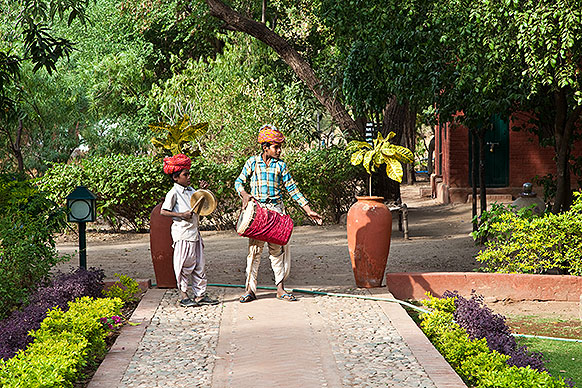
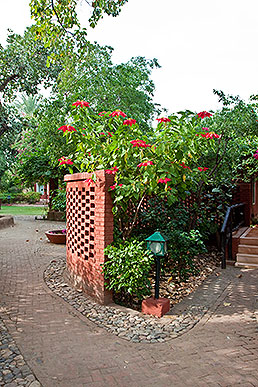
Nearing Ranakpur we stop first for a mid-afternoon lunch at a picturesque orchard said to have been a former royal retreat. As we enter we are greeted a bit like royalty by drummer boys, cobblestone paths and garden flowers.
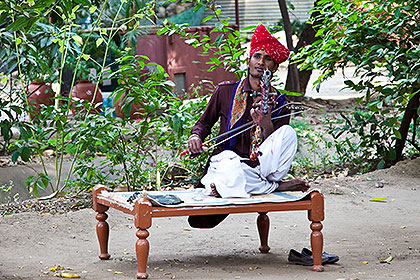
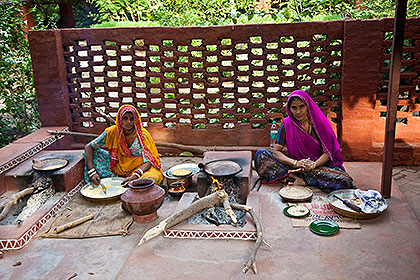
A musician entertains us while women cook nearby.
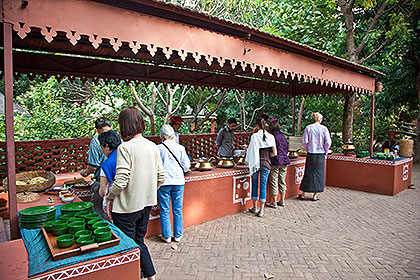
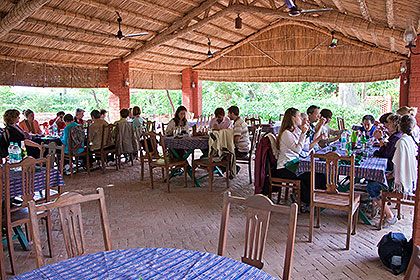
Lunch is served buffet style, and we dine under a thatched canopy.
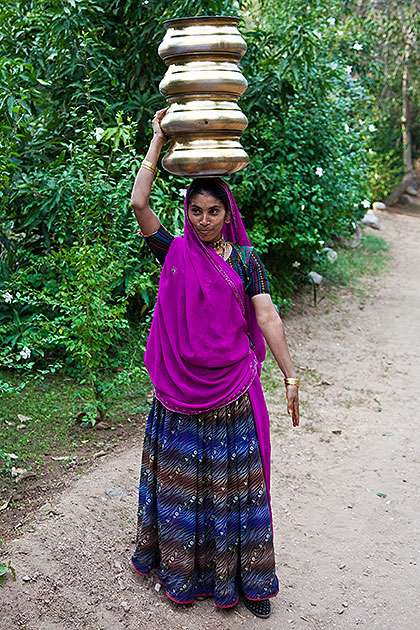
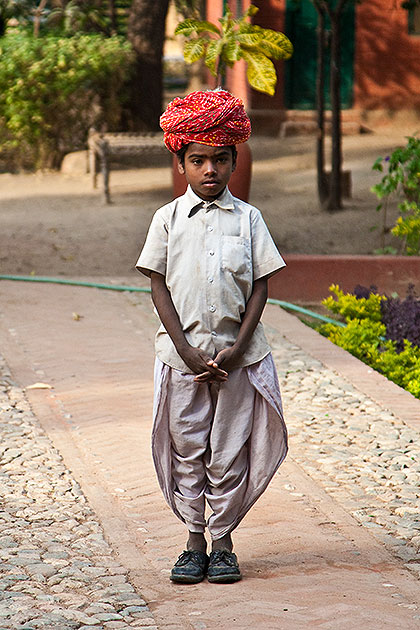
As we leave we see one of the cooks balancing pots on her head, and a drummer boy solemnly bidding us farewell.
Adinath Temple of Ranakpur
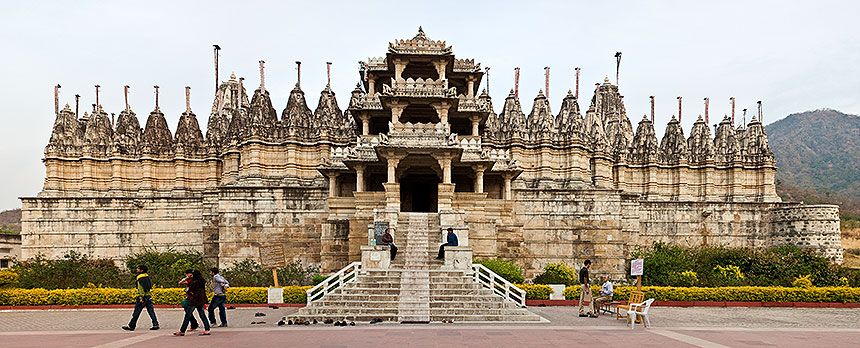
Among a cluster of 15th century temples at Ranakpur, all but one of which are Jain (the other being Hindu), the Adinath Temple is easily the largest. It is one of the five great holy places of the Jain faith, and its sophisticated design and elaborate decoration make it a showplace of Western Indian temple architecture. Constructed entirely of white marble, it contains 1444 pillars, each of which is different, and a variety of halls and chapels adhering to an overall plan of four wings surrounding the central sanctum. We are permitted to photograph anything we want, except the four-faced image of Adinath housed in the central sanctum.
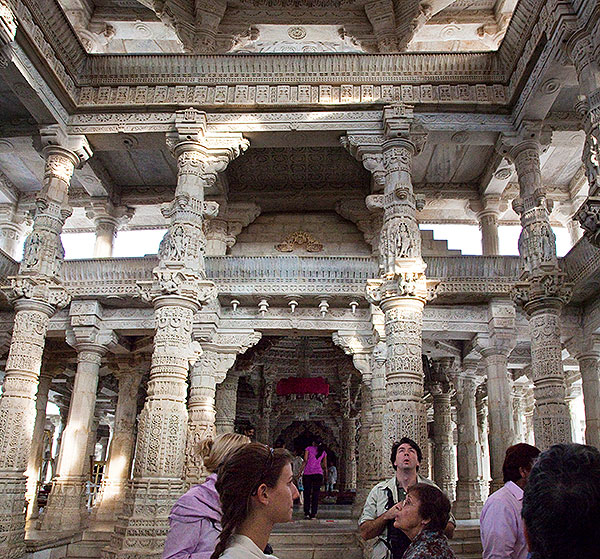
Upon entering from one side we are immediately awed by the temple's immensity and grandeur.
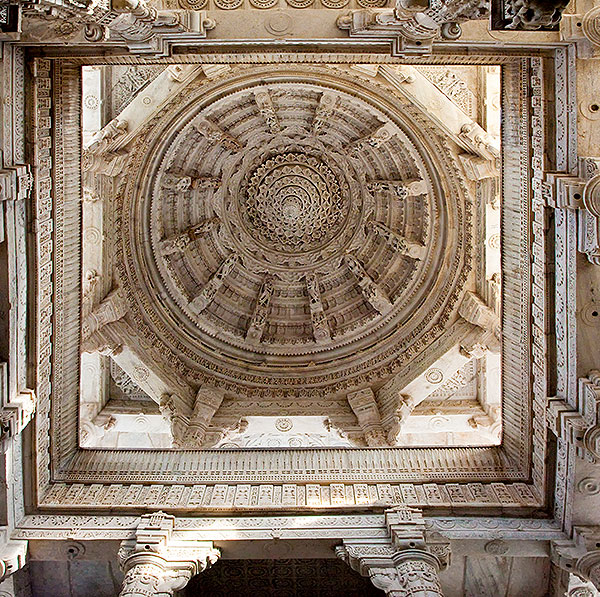
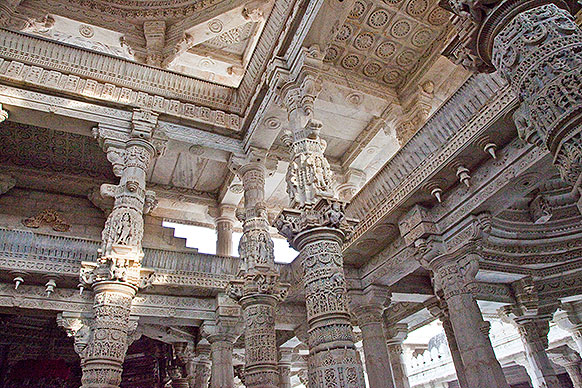
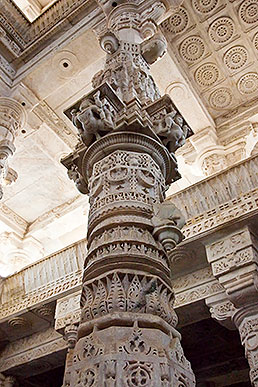
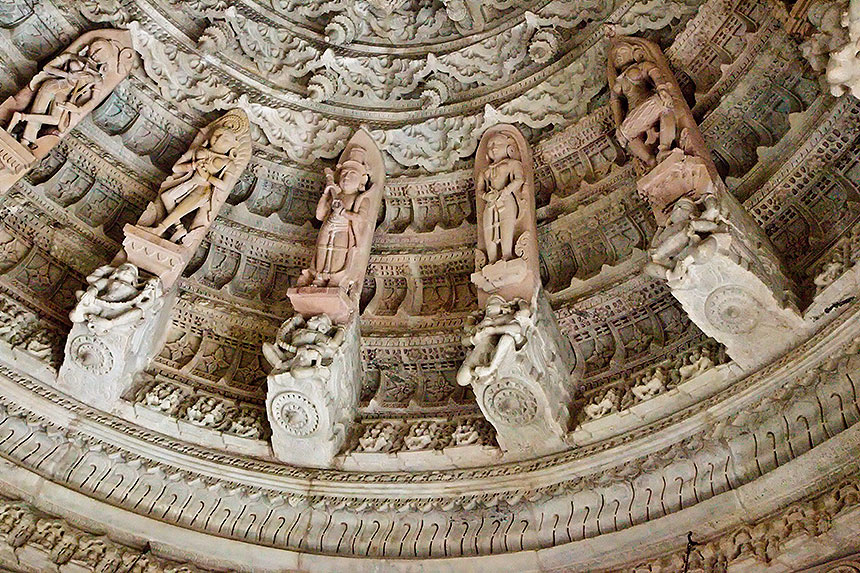
Ceiling detail.
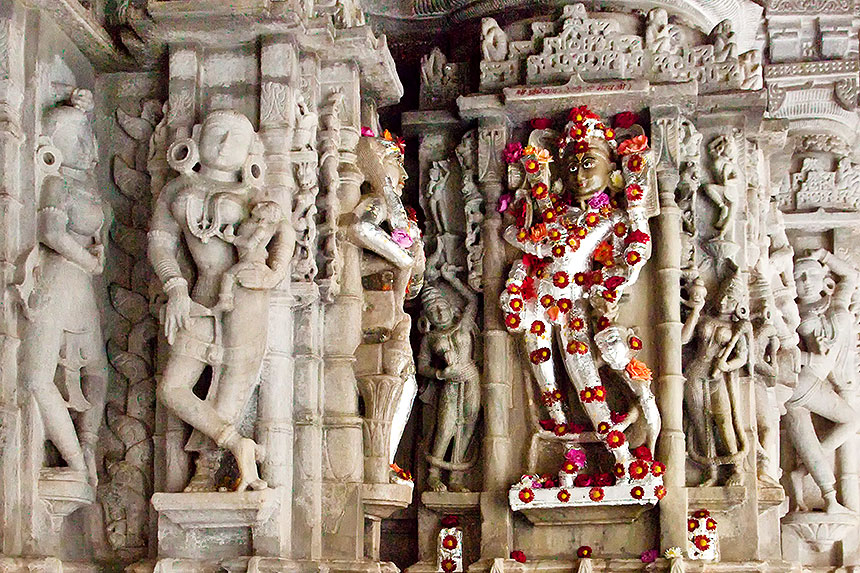
One figure has been honored with a wrapping of foil festooned with flowers.
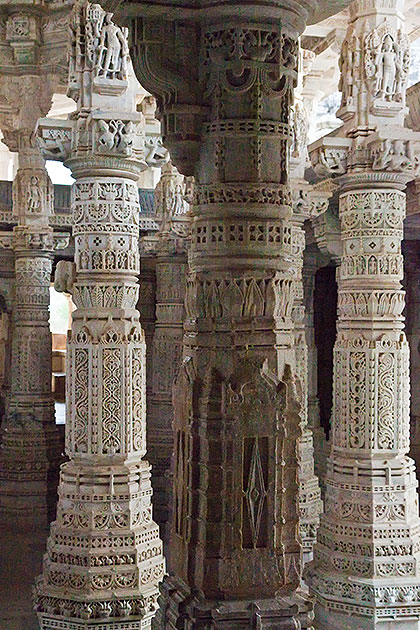
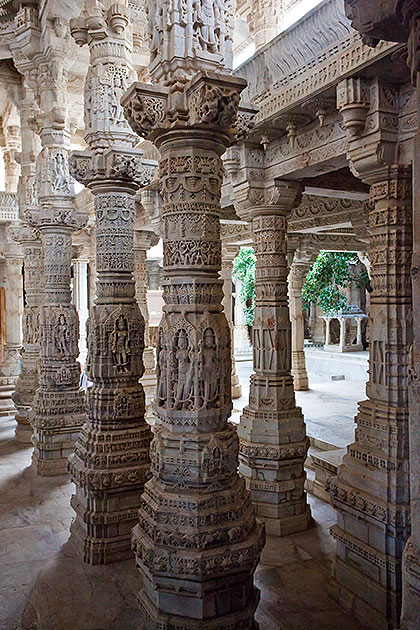
A few of the 1,444 intricately detailed pillars.
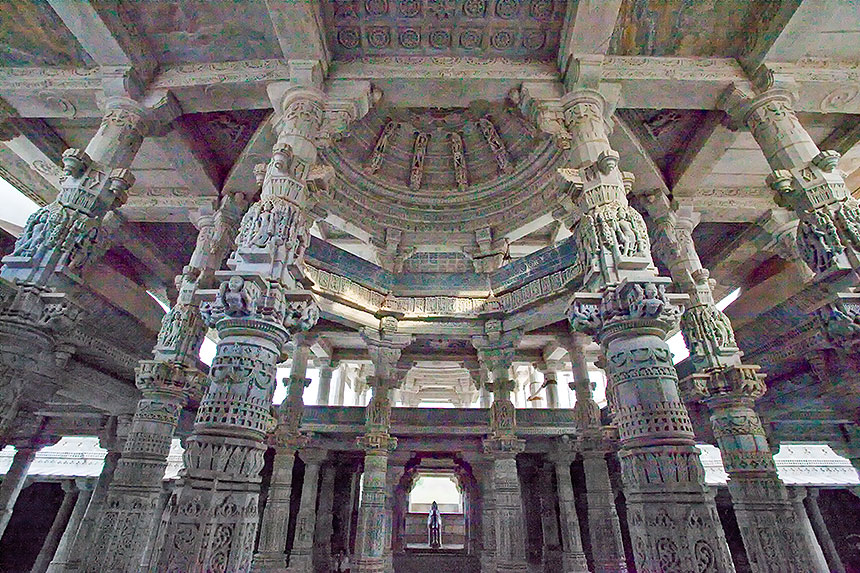
A wider angle view of one hall of the temple.
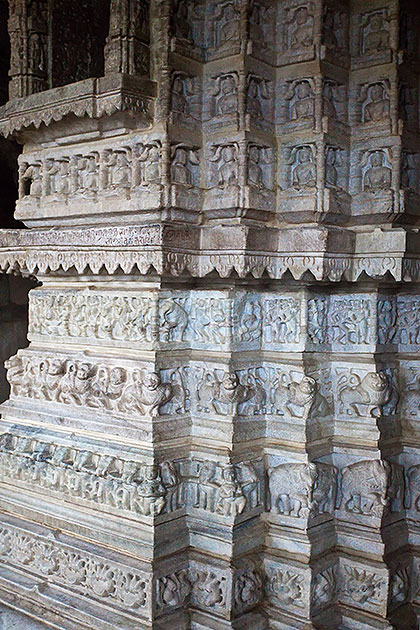
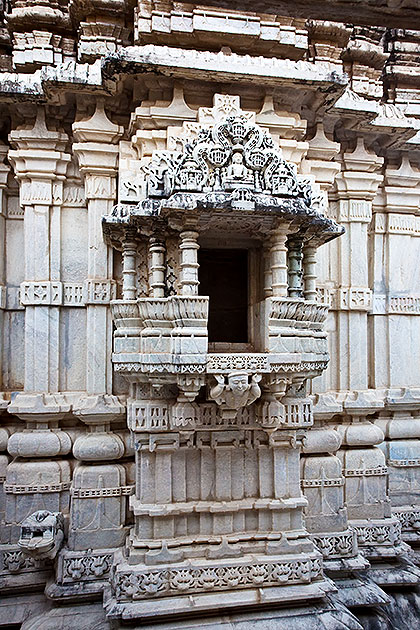
Details of intricate marble work.
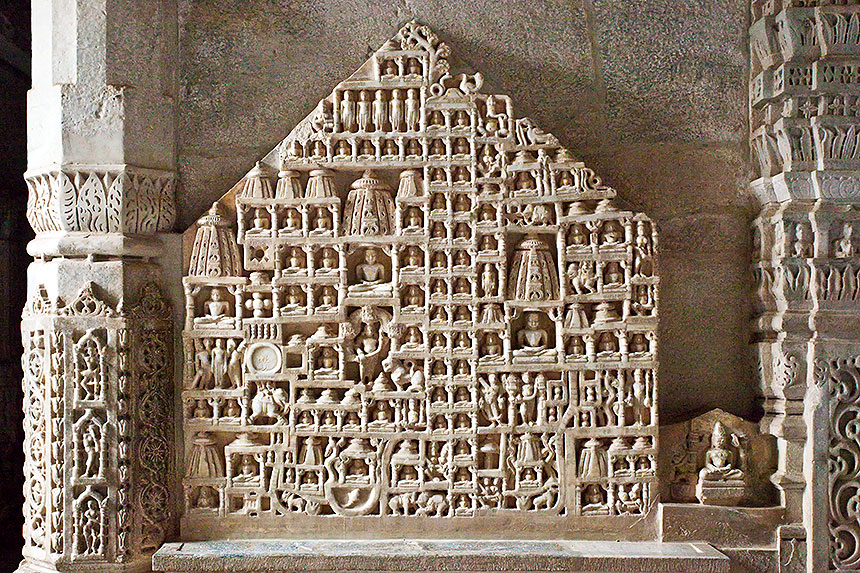
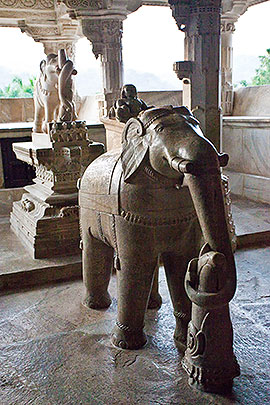
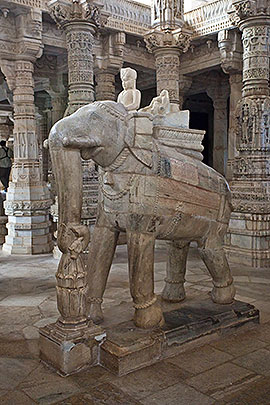
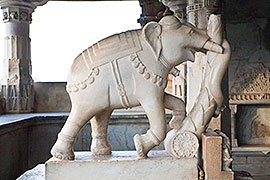
An abundance of white elephants.
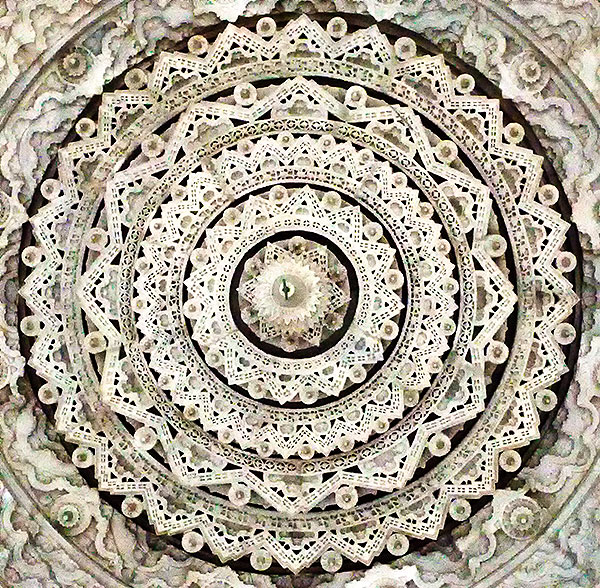
A last look at three of the dome ceilings before we leave. Naturally they are all different.
